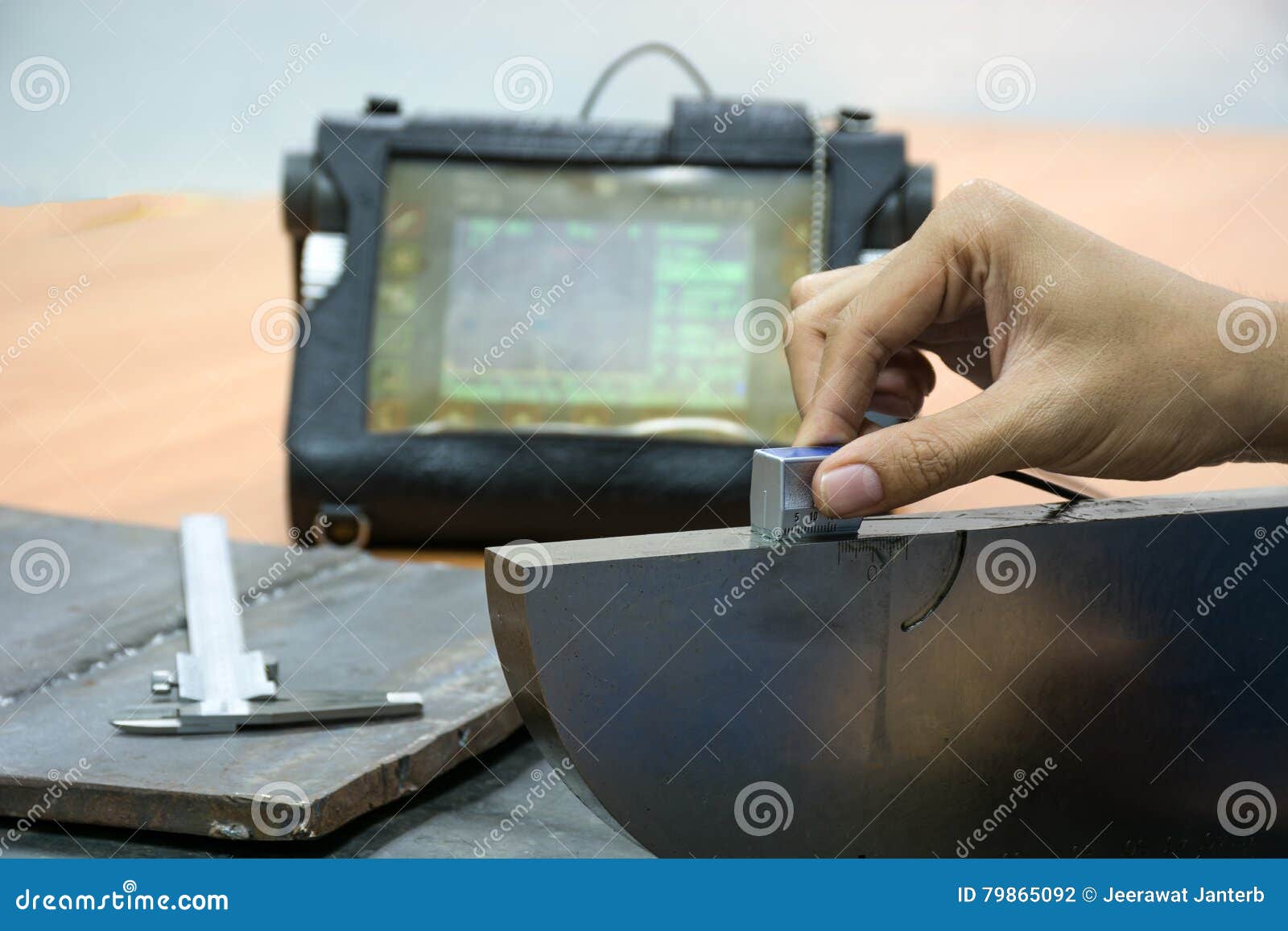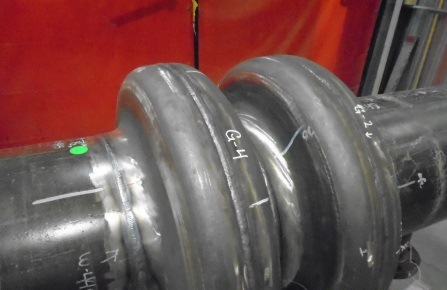How Regular Welding Inspection Madison Can Save You Money And Time
How Regular Welding Inspection Madison Can Save You Money And Time
Blog Article
The Significance of Thorough Welding Inspection in Industrial Applications
In the world of commercial applications, the importance of meticulous welding evaluation can not be overemphasized. It plays a vital role in ensuring the architectural integrity and long life of bonded components. Advanced non-destructive testing techniques enable the early discovery of potential defects, such as splits and insufficient combination, which, if left unchecked, can result in catastrophic failures. In addition, adherence to stringent industry requirements not only ensures quality but likewise builds customer self-confidence. As we explore the diverse advantages of persistent welding inspections, one should take into consideration the wider effects on safety, dependability, and cost-effectiveness in commercial procedures.
Enhancing Architectural Stability
When it comes to welding evaluation in industrial applications, boosting architectural integrity is critical. The key goal of welding inspection is to ensure that the welds are capable of birthing the anticipated anxieties and tons they will certainly encounter in solution.
The value of maintaining architectural stability in welded frameworks can not be overstated. Poorly implemented welds can cause devastating failings, resulting in costly fixings, downtime, and also endangerment of human lives. For that reason, inspectors play a critical duty in the lifecycle of commercial components, supplying assurance that the welding procedure delivers the preferred toughness and toughness.
Furthermore, advanced modern technologies, such as phased range ultrasonic testing and digital radiography, deal enhanced capacities in finding potential weak points, permitting for restorative actions before problems rise. By prioritizing the stability of welds via precise examination, sectors can guarantee functional performance and extend the durability of their framework.
Recognizing Welding Defects
Identifying welding problems is a vital aspect of making certain the safety and reliability of welded structures. Typical welding flaws include porosity, cracks, insufficient combination, and damaging.

Competent assessors utilize both visual exam and advanced non-destructive testing (NDT) methods, such as radiographic or ultrasonic screening, to discover these issues. The timely identification and rectification of welding problems are essential to keep the structural integrity and durability of industrial components.
Making Sure Compliance Requirements
Preserving the stability of welded structures prolongs past recognizing issues; it calls for adherence to stringent conformity standards. Compliance with well established criteria, such as those given by the American Welding Culture (AWS) and the International Company for Standardization (ISO), makes certain that welds meet minimal safety and quality needs. These criteria incorporate a wide variety of criteria, including product requirements, welding treatments, and credentials of welders. Adherence to these criteria is crucial to stop structural failures, which could lead to tragic repercussions in commercial applications.
Regular audits and inspections are important in verifying conformity. Inspectors have to possess a thorough understanding of the appropriate standards and be experienced at using different non-destructive screening (NDT) techniques to evaluate weld high quality. By making certain that welding methods check my blog straighten with compliance criteria, companies alleviate the threat of non-conformity, which can result in lawful obligations and safety and security risks.
In addition, maintaining compliance not only safeguards architectural integrity however additionally enhances a business's reputation in the sector. Clients and stakeholders are more probable to trust firms that regularly show a commitment to high quality and security via rigorous compliance. Thus, making certain conformity standards is a critical component in the successful application of welding in commercial applications.
Lowering Maintenance Costs

The application of innovative non-destructive testing (NDT) approaches, consisting of ultrasonic, radiographic, and magnetic particle inspections, improves the ability to detect subsurface imperfections without jeopardizing the structural stability of components. By utilizing these techniques, markets can significantly expand the service life of their devices, decreasing downtime and the linked monetary worry of maintenance activities.
Furthermore, a robust welding examination program sustains the optimization of upkeep routines, changing from reactive to anticipating maintenance approaches. This proactive technique not just reduces unanticipated failures however additionally improves source allocation, making sure that maintenance efforts are focused and reliable. Ultimately, the investment in strenuous welding inspection is offset by the considerable financial savings realized via lowered upkeep demands, contributing favorably to the total operational efficiency of commercial ventures.
Improving Precaution
Welding assessment plays a vital role in this context, as it makes sure that all connections and joints fulfill strict safety and security standards. Comprehensive click over here now assessments assist identify issues such as splits, porosity, or insufficient fusion that can jeopardize structural honesty.
To boost precaution, taking on innovative non-destructive screening (NDT) techniques is essential. Approaches like ultrasonic testing, radiographic screening, and magnetic bit inspection allow for thorough assessment without damaging the framework. These technologies make it possible for examiners to detect covert imperfections early in the construction process, promoting timely corrective activities. Moreover, implementing a see post durable quality control system that consists of regular training for assessors and welders makes sure adherence to developed security criteria.
Lastly, cultivating a society of security within the company stresses the importance of extensive welding examinations. Urging open interaction and collaboration among welders, inspectors, and engineers adds to a common dedication to safety and security excellence. Welding Inspection Madison. In doing so, sectors can guard their operations, protect personnel, and maintain public trust

Conclusion
Extensive welding evaluation is important in industrial applications, significantly enhancing architectural stability and dependability. By utilizing innovative non-destructive testing methods, possible welding flaws such as fractures and incomplete fusion are determined early, making certain conformity with market criteria and cultivating client count on. Strenuous inspections result in decreased maintenance expenses and add to a safer working environment. Ultimately, the attentive execution of welding examinations plays a vital function in preserving operational performance and safety and security in commercial settings.
As we discover the multifaceted benefits of thorough welding inspections, one should consider the broader effects on safety, integrity, and cost-effectiveness in industrial operations.
The primary objective of welding evaluation is to make certain that the welds are capable of bearing the expected stress and anxieties and loads they will come across in solution. Reliable welding inspection plays an important duty in minimizing these prices by guaranteeing the stability and durability of welds, therefore minimizing the risk of premature failures.Comprehensive welding examination is indispensable in industrial applications, considerably improving structural stability and integrity. Ultimately, the diligent execution of welding inspections plays a crucial role in maintaining functional performance and safety and security in industrial settings.
Report this page